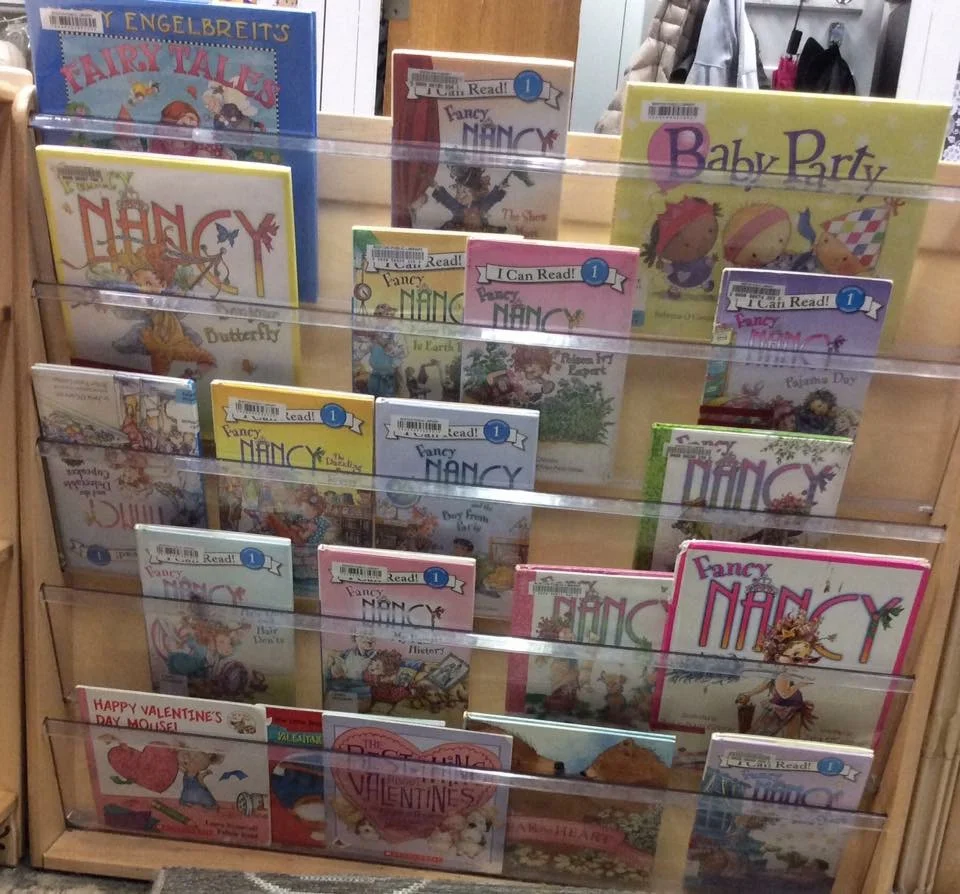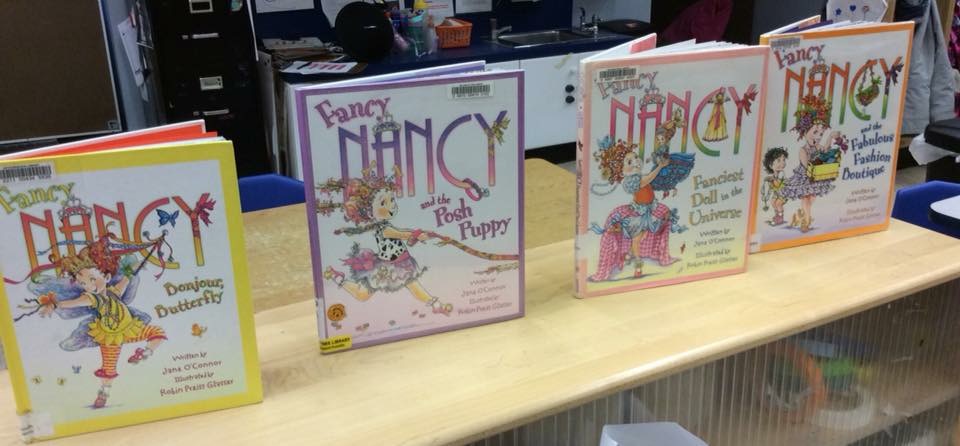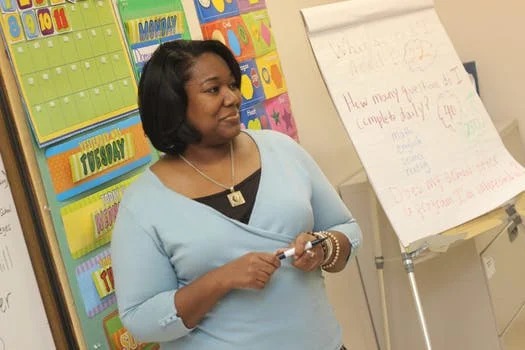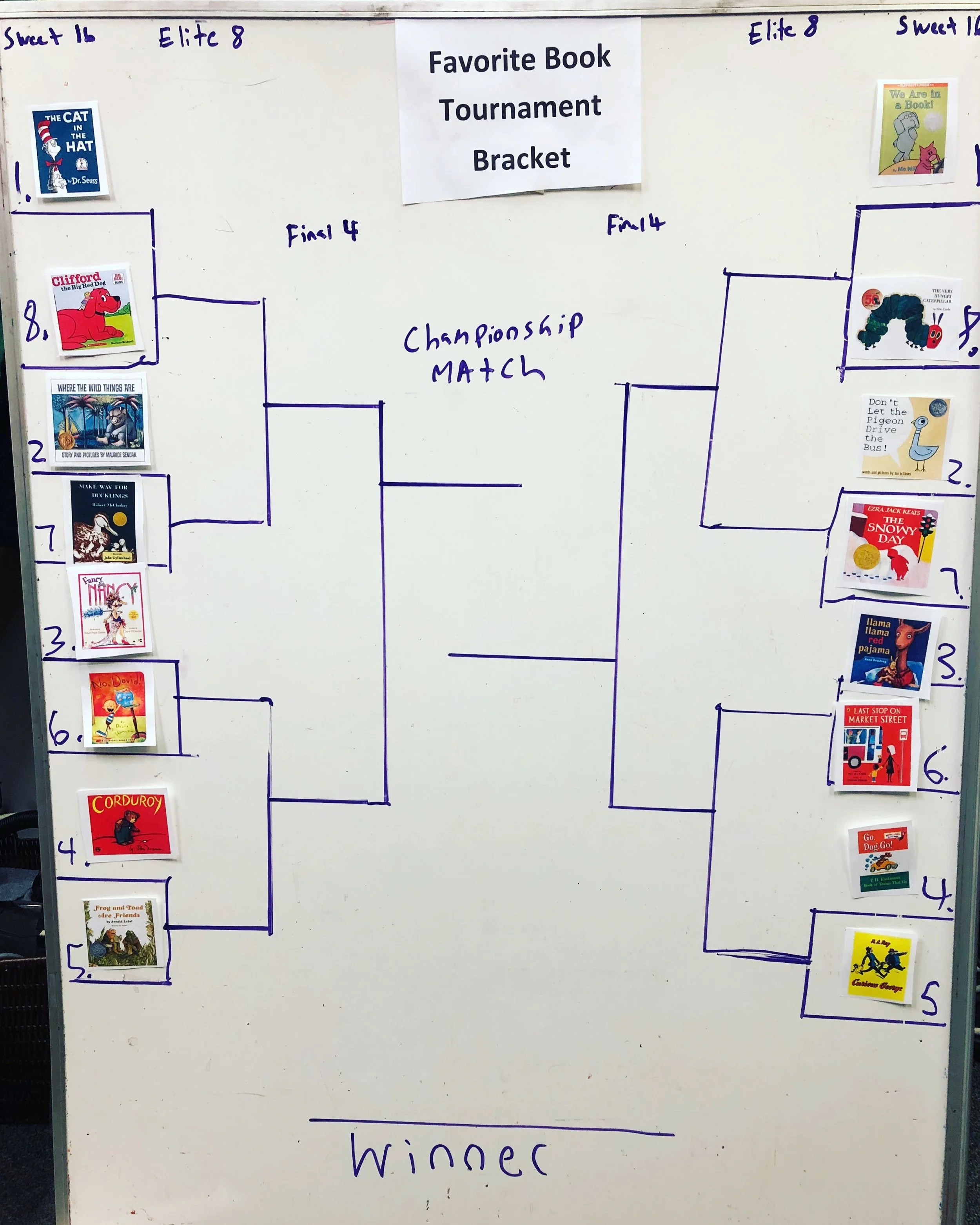Fancy Nancy, Fashion Shows, and Vocabulary Development In Preschool/Prek
*Note: The following is an excerpt of an email sent home to parents about a Prek class’s Fancy Nancy Curriculum:
The Fancy Nancy books by Jane O’Conner are designed to teach children new vocabulary words; https://www.fancynancyworld.com/books/
Repeated reading of the books can help wit vocabulary development.
In Addition, we will often do activities that expand and reinforce the meaning of vocabulary words for the children. For example, we will learn different synonyms for common words that children say like beautiful or big and play games where the children will have to use the synonyms; we will also try to use these synonyms in our informal everyday interactions with the children in order to strengthen the child’s understanding of the meaning. For instance, we might say that a block tower a child made is gigantic, humongous, or colossal instead of just saying it is big or say an outfit dazzling, or beauteous, or elegant, instead of just saying it is beautiful. As a culminating event, there will be a Fancy Nancy Fashion show and as part of the preparation for that children will learn about different types of clothing as well as fashion related terms like accessories, garments, and runway. At the fashion show, children walk down a runway and get to show off their favorite outfit. The outfit does not have to be Fancy. In the past children have choose to wear everything from fancy dress up clothes and superhero costumes to t shirts and sweatpants. We emphasize that it is ok for all children to have their own unique style and children will get a chance to describe their outfit to friends and explain why they choose to wear it. In addition, children will practice giving each other compliments using words we learn in Fancy Nancy books like “Marvelous” and “elegant”.
Part of the reasons that we will be focusing this month and many of the future months on vocabulary development is many studies have proven that vocabulary development from birth to 5 can have lifelong impacts; the most famous of these studies is the Hart and Risley study. In this study, the amount of words children heard at home were documented and major differences were found from household to household which unfortunately often correlated to the families economic situation. The children were tracked from 10 year and it was found that the more words children were exposed to at a younger age, the better they did on vocabulary and reading tests when they were age 10. To read more about this study go here: http://www.aft.org/newspubs/periodicals/ae/spring2003/hart.cfm A strong vocabulary is also closely tied to a child’s reading comprehension skills and studies have shown that the sophistication level of vocabulary children hear in preschool from their teachers , parents, and books can have long term positive impact on reading comprehension and general school performance. You can read an overview of a study about this here:
http://news.vanderbilt.edu/2011/08/preschool-language-literacy/
Moreover, other studies have shown that having a strong vocabulary also helps children make friends socially and manage their anger and other emotions: here is a link to a study about the this topic: http://news.yahoo.com/early-language-skills-help-kids-manage-anger-142900433.html
You might be asking now, how can you help vocabulary development at home; there is a pretty simple answer to that. The more you talk to your children, the stronger their vocabularies will most likely be. Furthermore, it is great to share words and concepts that deal with specific topics that you are interested in. It does not matter if the topic is sports, or fashion, or cooking, or cars, or gardening, or music or anything. If you have a genuine interesting in something, children usually follow your lead and in those interest areas you can teach children specific vocabulary words. This does not have to be done via formal lesson plans but just through your daily interaction. If you are baking with your child you can explain what “sifting the flour” means or if you are watching a basketball game you can explain what an “alley-oop” is. This type of talk has been proven to have long lasting impacts on children’s vocabulary, reading, and social development. Additionally, just reading to your child is a great way to expand their vocabulary. Often times, children’s books are littered with words and concepts that might not come up in our daily lives. The PBS kids show Word Girl is also designed much like Fancy Nancy to specifically teach children new vocabulary word. PBS kids shows Super Why, Syd The Science Kid, and Wild Krats also have aspects to them that expose children to literacy skills and in the case of the latter two vocabulary words related to science.









